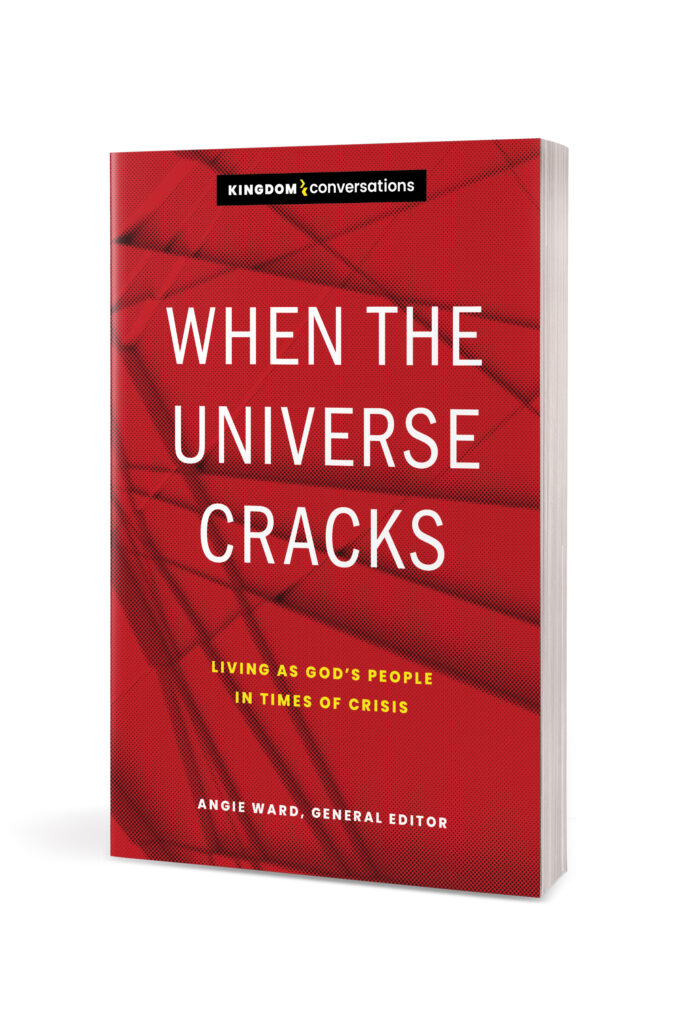About a year after the world went inside in spring 2020, I found myself suddenly, finally, in the same room with a quorum of my coworkers at NavPress. We could only see each other’s eyes, as the mask mandate was still in full force. They may remember it differently, but I remember being a bit gobsmacked. I hadn’t realized how much I missed them. I struggled to think of what to say to them. I’m pretty sure I just stared at them.
My educational background is in history, and so when I consider how to think about the year we’ve just had, my first thought tends to be, Ask me again in a few years. We’re still this close to the pandemic year, still taking inventory of the impact of that year of isolation on our relationships, our rhythms, our ways of being in the world. We have an economy to rebuild. I’ve got like fifteen pounds I need to lose. It’s really just too soon, and there are other urgencies to address.
Ironically, this inability to adequately consider what there is to consider about this year of disruption tends, I think, to cause us to rush our way through taking stock. “Think fast!” the saying goes, and it’s usually accompanied by someone throwing something at our face.
Sometimes It’s Better to Think Slowly
We were two months into the global pandemic when we received our first book proposal that mentioned it. I don’t mind telling you I found it pretty brazen: “The gospel is like a coronavirus . . .” “Think fast!” this author seemed to shout at us. It made me want to lose my sense of smell, it poisoned the air around me so much.
A week or so later I found in my inbox not one but two press releases for books based entirely on COVID-19. “In your face!” was the message I received. There was hardly anything to know yet about this virus, and here we were, buried in books and book proposals telling us all about it. Too soon, bros.
That experience set us to thinking about what we ought to think about as we thought about the pandemic. (Try reading that sentence three times fast.) We ultimately found ourselves with a book idea that we think will actually help us all, collectively, emerge thoughtfully from our pandemic year. When the Universe Cracks releases October 5, 2021 and looks beyond COVID-19 to crises of all sorts and how God’s people move through them to love God and our neighbors well.
Learning to Think and Live Well
When the Universe Cracks opened up for us a larger conversation about what else we should be thinking carefully and slowly about. So When the Universe Cracks is now the first in what we expect will be a running series of what we’re calling “Kingdom Conversations,” in which people from a variety of backgrounds consider together how God might be leading us through the complexities of our times.
This sort of thing, I think, is what books are for and what books do best. Books are an enduring record of patient reflection. They help us remember how we have thought well, and they help us consider how to think well for the future. And of course the best books don’t just help us think well; they help us live well, keeping in step with a God who loves us as well as he leads us.
So keep an eye out for When the Universe Cracks and other Kingdom Conversations to come. And when someone tells you to think fast, take a few minutes to consider the alternative option of thinking slow.




Excellent. Thank you for sharing and encouraging. Now that I am well into the eighth decade, my view forward is shortened. It is quite compacted; so much growing to do….still. No time to let opportunities slide by ’till next time.’
And yet, your words are wise…no rush.